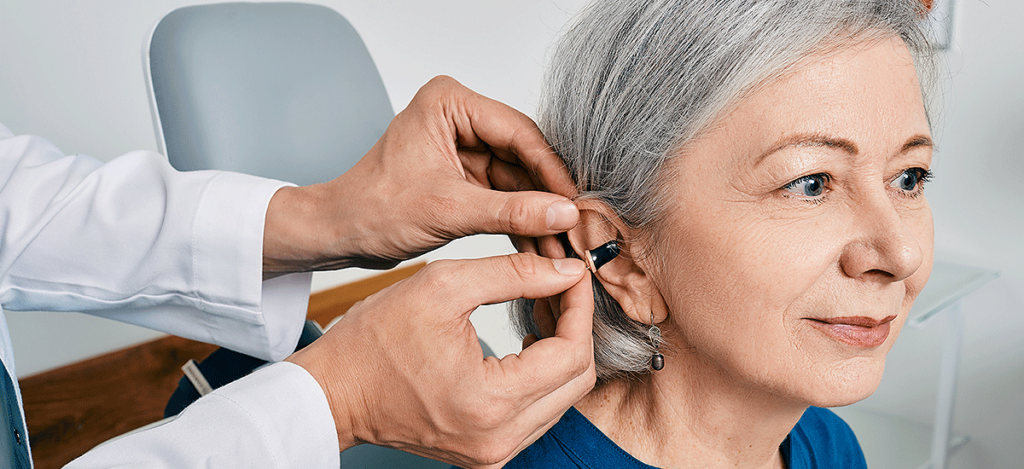Hearing Aid Styles and How to Choose What’s Right for You
It’s estimated that over 28 million people in the United States could benefit from the use of hearing aids, but how do you decide what hearing aid is right for you? There are a variety of different brands and technologies that can help you to treat specific concerns, but there are a few main styles available. Here are a few of the most common styles, and some of their key features:
In-the-Ear (ITE)
In-the-ear hearing aids are fitted to sit inside your outer ear and ear canal. There are a few types of ITE hearing aids – some of them will almost completely fill the area in your outer ear, while some of them will only partially fill the area. They’re usually custom fit to be comfortable for you and are usually available in a color that can blend in with your skin tone. ITE devices can help with moderate to severe hearing loss.
Behind-the-Ear (BTE)
Behind-the-ear hearing aids are a very popular type of hearing aid. These devices sit behind your ear, with tubing that wraps over the top of your ear and connects to an ear mold that fits in your ear canal. Some BTE devices have rechargeable batteries, and some have disposable. These devices can be an option for most severities of hearing loss.
Completely-in-the-Canal (CIC)
Hearing aids that are completely in the canal can be a very discreet option for many hearing aid users. They fit inside the ear canal, with some sitting so deeply within the canal that they’re referred to as “invisible.” In addition to being less visible, CIC hearing aids can also help reduce the amount of wind noise that you would hear.
Receiver-in-Canal (RIC)
Receiver-in-canal hearing aids are also sometimes referred to as receiver-in-the-ear (RITE) devices. They are very similar to BTE hearing aids because they have a microphone and processor that sit behind the ear and are wired to a speaker that rests inside of the ear canal. These hearing aids usually have a good sound quality and have more advanced technologies available in them.
Whether you’re just starting your hearing loss journey, or you’re a long-time hearing aid user looking for a change, knowing your options can help you decide on the best hearing aids for you and your life.
Looking to explore your hearing aid options? Call our office to schedule an appointment today.

